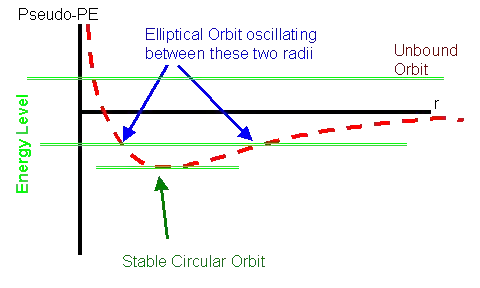I am not a physicist; I am a software engineer. While trying to fall asleep recently, I started thinking about the following.
There are many explanations online of how any object stays in orbit. The explanation boil down to a balance of the object's tangential force with centripetal force.
But suppose something upsets this balance by a miniscule amount -- say, a meteorite or a spaceship crashing into Earth. Doesn't this start a positive feedback process to break Earth out of orbit?
Suppose the meteorite crashes such that the Earth is briefly forced toward the sun. (The meteorite contributes to the centripetal force.) Now Earth is just a smidgen closer to the sun. Due to the equation $F=G \frac{m_1 m_2}{d^2}$ that everyone learns in high school physics, the sun's centripetal force acting on Earth in turn increases! That pulls Earth even closer to the sun, increasing centripetal force yet more, and so on.
A similar argument applies to briefly forcing Earth away from the sun.
Empirically, I want to say that there's a buffer, such that if the balance of forces is disrupted by less than X%, we remain in orbit. But I cannot justify any buffer from the equation above.
So, what am I missing? How can objects in orbit suffer minor perturbations in the balance of tangential and centripetal force and yet remain in orbit, when it appears to me that any perturbation starts a positive feedback loop?


